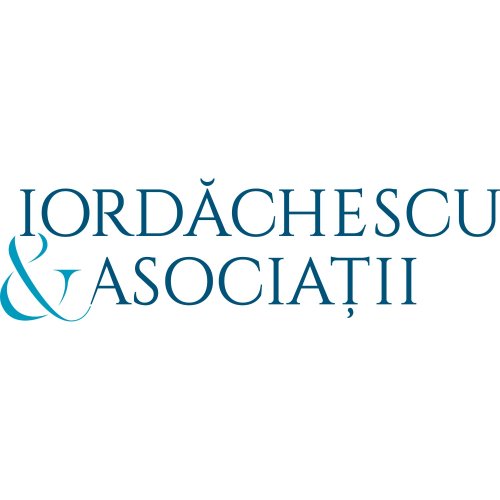Best Debt Capital Markets Lawyers in Romania
Share your needs with us, get contacted by law firms.
Free. Takes 2 min.
Or refine your search by selecting a city:
List of the best lawyers in Romania
About Debt Capital Markets Law in Romania
Debt Capital Markets (DCM) refer to the financial markets where companies, financial institutions, and government entities issue debt instruments, such as bonds, to raise funds from investors. In Romania, the development of the debt capital markets has played an essential role in providing alternative financing sources beyond traditional bank loans. The framework for DCM in Romania aligns with both national regulation and European Union directives, facilitating a transparent and efficient environment for issuers and investors alike.
Romania’s participation in regional and international capital markets has grown in recent years, with both corporate and sovereign issuances increasingly common. Local and international investors find the Romanian debt market attractive due to evolving legal structures, regulatory harmonization, and increasing market sophistication.
Why You May Need a Lawyer
Debt Capital Markets are complex and highly regulated. Whether you are an issuer, investor, or arranger, legal advice is crucial in many situations, such as:
- Structuring and preparing for a bond issuance or private placement
- Ensuring compliance with national and European regulations
- Drafting or reviewing the prospectus and other offering documents
- Negotiating with intermediaries, underwriters, or investors
- Debt restructuring, refinancing, or liability management transactions
- Dealing with regulatory authorities, such as the Romanian Financial Supervisory Authority (ASF)
- Handling disputes related to the distribution, trading, or enforcement of debt instruments
Legal experts help manage risk, streamline transactions, and ensure that the interests of all parties are protected.
Local Laws Overview
Romania's legal regime for Debt Capital Markets is governed by a mix of national laws and EU regulations. Key aspects include:
- Primary Legislation: The Capital Market Law (Law no. 297/2004 as amended) and supplementary regulations lay down the foundation for debt securities offerings and trading.
- Prospectus Regulation: The EU Prospectus Regulation (2017/1129) applies, setting requirements for public offerings and admission to trading on regulated markets.
- Secondary Legislation: Regulations from the Romanian Financial Supervisory Authority (ASF) provide further operational details regarding disclosures, market conduct, and reporting obligations.
- Listing and Trading: Debt securities can be listed on the Bucharest Stock Exchange (BVB) or traded on multilateral trading facilities, with compliance requirements for each platform.
- Taxation: Tax treatment for bonds and other debt instruments involves specific rules for interest payments and capital gains for both residents and non-residents.
- Cross-border Transactions: EU directives facilitate cross-listings, passporting rights, and harmonize protection for investors.
- Disclosure: Transparency and periodic disclosure are strictly regulated to protect investors and support market integrity.
- Enforcement and Sanctions: Regulatory oversight and mechanisms for dispute resolution are in place for non-compliance or malpractice in the DCM sector.
Frequently Asked Questions
What types of debt instruments can be issued in Romania?
Typical debt instruments include corporate bonds, municipal bonds, government securities (T-bills and T-bonds), and structured notes. These can be issued through public offerings or private placements.
Who regulates the Debt Capital Markets in Romania?
The Romanian Financial Supervisory Authority (ASF) is the primary regulator overseeing issuances, trading, and market conduct in Romania’s capital markets.
Is it necessary to publish a prospectus for a bond issuance?
Generally, yes. A prospectus is mandatory for public offerings and for securities admitted to trading on regulated markets. Private placements and certain exemptions may apply under EU and national laws.
Can foreign companies issue debt securities in Romania?
Yes, foreign entities may issue debt securities in Romania, subject to Romanian and EU regulations governing cross-border offers and admissions to trading.
What are the requirements for listing bonds on the Bucharest Stock Exchange?
Requirements include submitting an approved prospectus, meeting minimum issue size and duration conditions, and fulfilling ongoing reporting and disclosure obligations.
Are there specific investor protection rules for DCM in Romania?
Yes, regulations require adequate disclosure, fair marketing practices, and clear investor classification, with additional safeguards for retail investors.
How are interest and principal payments taxed?
Taxation depends on the issuer and investor’s jurisdiction. Romanian law prescribes withholding tax on interest paid to non-residents, while residents are subject to personal or corporate income tax on such income.
What are the main steps in a debt issuance process?
Steps typically include structuring the deal, drafting documentation, obtaining regulatory approvals, marketing to investors, pricing the offering, listing/trading, and ongoing compliance.
What legal risks should issuers and investors consider?
Risks include regulatory changes, market volatility, disclosure obligations, contractual terms, and enforcement rights in case of default or dispute.
How can legal counsel assist with debt capital markets transactions?
Lawyers can help with structuring, regulatory compliance, documentation, negotiations, due diligence, risk assessment, and liaising with authorities and counterparties, ensuring a smooth and compliant process.
Additional Resources
If you are seeking more information or guidance regarding Debt Capital Markets in Romania, consider these resources and organizations:
- Romanian Financial Supervisory Authority (ASF): Supervises all capital market activities, including debt issuances and trading.
- Bucharest Stock Exchange (BVB): Provides detailed rules and guidance on listing and trading debt securities in Romania.
- Romanian Ministry of Public Finance: Offers information about government securities and sovereign borrowing programs.
- European Securities and Markets Authority (ESMA): Issues guidelines and best practices relevant across EU jurisdictions, including Romania.
- Local and international law firms: Experienced legal advisors offer specialized DCM services and insights tailored to the Romanian market.
Next Steps
If you require legal assistance with a Debt Capital Markets matter in Romania, consider taking these steps:
- Identify your goals and specific needs, such as issuing bonds, investing, or navigating a cross-border transaction.
- Gather relevant information and documentation related to your planned activity or investment.
- Research and shortlist law firms or legal professionals with proven DCM expertise in the Romanian market.
- Schedule an initial consultation to discuss your objectives, potential challenges, and the legal process involved.
- Work with your legal advisor to develop a clear action plan, address compliance requirements, and anticipate key deadlines or regulatory submissions.
Engaging specialized legal guidance early in the process can help you manage risks, ensure regulatory compliance, and achieve a successful outcome in Romania’s Debt Capital Markets.
Lawzana helps you find the best lawyers and law firms in Romania through a curated and pre-screened list of qualified legal professionals. Our platform offers rankings and detailed profiles of attorneys and law firms, allowing you to compare based on practice areas, including Debt Capital Markets, experience, and client feedback.
Each profile includes a description of the firm's areas of practice, client reviews, team members and partners, year of establishment, spoken languages, office locations, contact information, social media presence, and any published articles or resources. Most firms on our platform speak English and are experienced in both local and international legal matters.
Get a quote from top-rated law firms in Romania — quickly, securely, and without unnecessary hassle.
Disclaimer:
The information provided on this page is for general informational purposes only and does not constitute legal advice. While we strive to ensure the accuracy and relevance of the content, legal information may change over time, and interpretations of the law can vary. You should always consult with a qualified legal professional for advice specific to your situation.
We disclaim all liability for actions taken or not taken based on the content of this page. If you believe any information is incorrect or outdated, please contact us, and we will review and update it where appropriate.
Browse debt capital markets law firms by city in Romania
Refine your search by selecting a city.

















